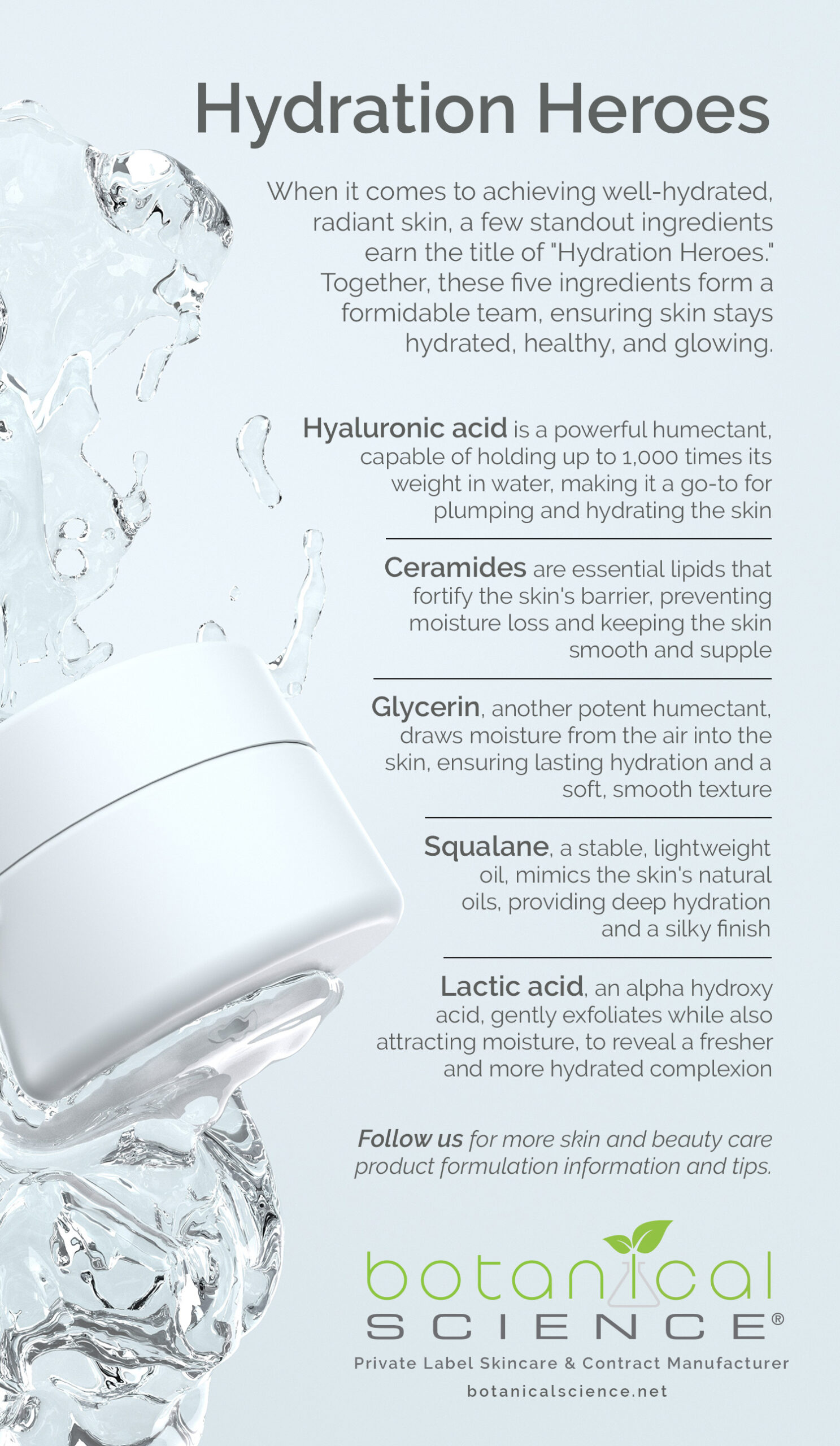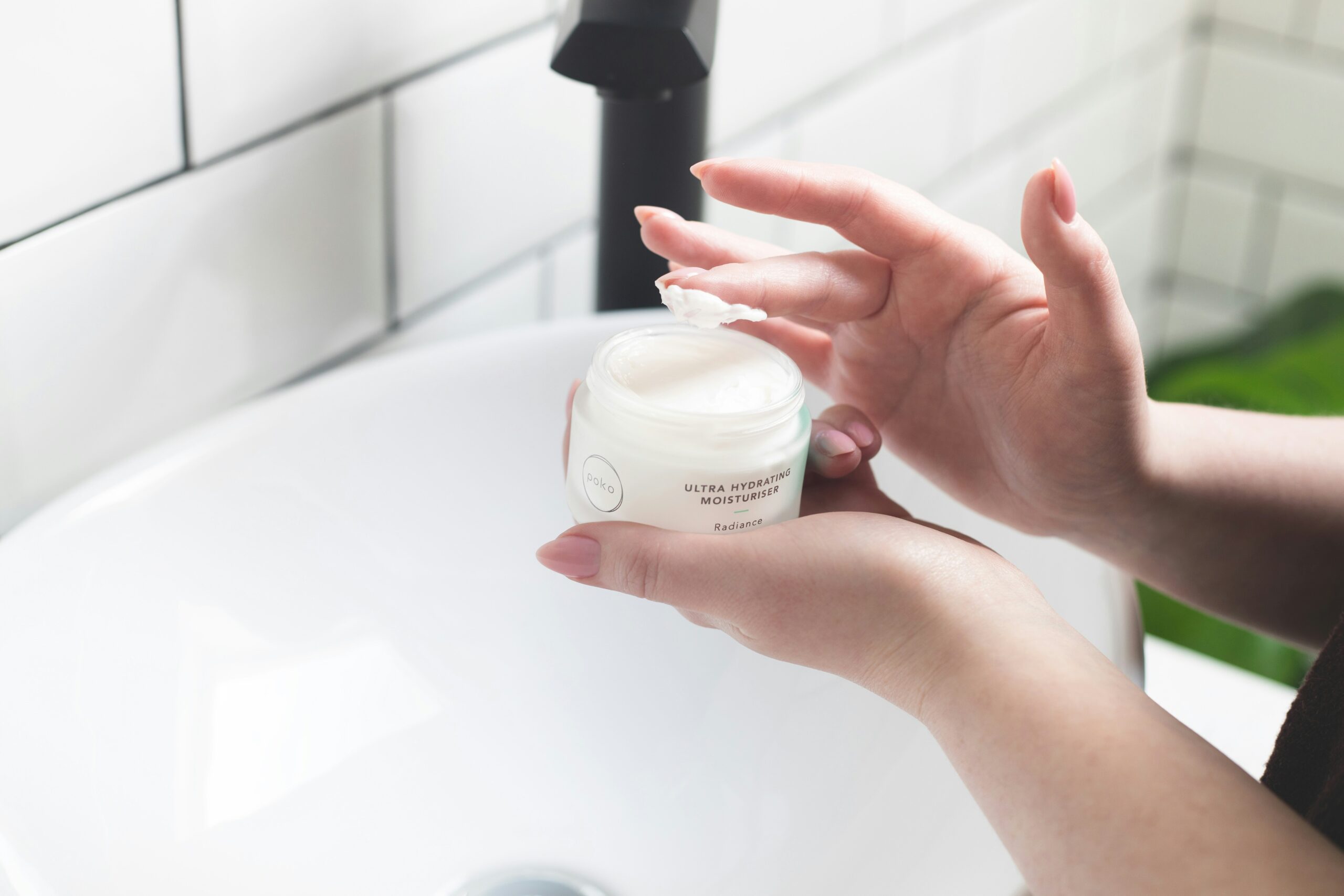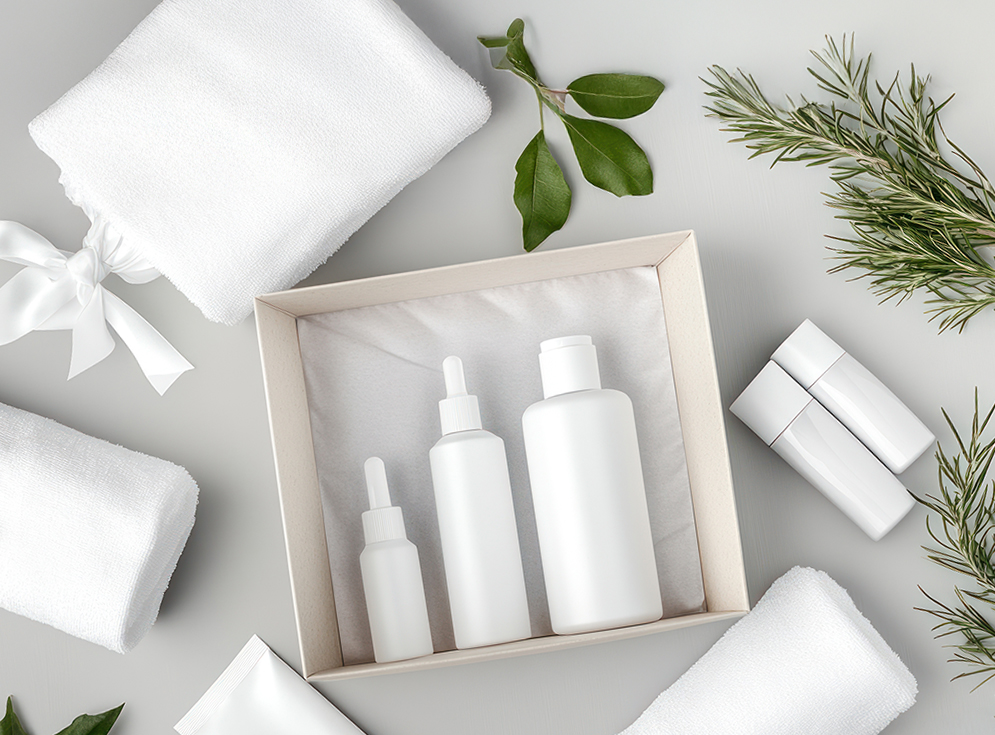
According to a study done by DripDrop, 75 percent of Americans are chronically dehydrated. Though the average American drinks 8 cups of water per day (the recommended amount), this is offset by other drinks such as coffee or alcoholic beverages. Dehydration affects overall skin health, as dehydrated skin lacks sufficient moisture to function optimally. Skin hydration refers to the process of maintaining adequate moisture levels in the skin’s outermost layer, known as the epidermis. Hydrated skin is a barrier against external pollutants, prevents dryness, and promotes a radiant complexion. Therefore, understanding and prioritizing skin hydration is essential for maintaining healthy and vibrant skin.
Factors Affecting Skin Hydration
Many elements greatly influence skin hydration, such as environmental factors, lifestyle choices, and skincare habits. Environmental factors such as humidity, temperature, and pollution can impact the moisture levels in your skin. Low humidity levels can lead to moisture loss, especially in dry climates or during winter months. Extreme temperatures, both hot and cold, can also strip the skin of its natural oils, leading to dehydration.
Lifestyle factors, like your diet, hydration levels, and quality of sleep directly impact the moisture levels in your skin. A balanced diet rich in fruits, vegetables, and omega-3 fatty acids can promote skin health and hydration. Adequate hydration by drinking enough water throughout the day helps maintain skin moisture from within. Quality sleep helps the skin repair and rejuvenate during rest, contributing to its overall hydration levels.
Skincare habits such as regular cleansing, moisturizing, and exfoliating are vital for maintaining optimal skin hydration. Cleansing removes impurities, allowing moisturizers to penetrate effectively. Moisturizing helps replenish lost moisture and strengthens the skin’s barrier function. Exfoliating removes dead skin cells, allowing moisturizers to absorb better, thus improving skin hydration overall.
Understanding Skin Hydration Levels
The skin’s barrier function and its ability to retain moisture are fundamental to maintaining hydration. The outermost layer of the skin acts as a barrier that prevents water loss and protects against external aggressors. Maintaining the integrity and health of this barrier is important for effective skin hydration.
Different skin types have varying hydration needs. For instance, oily skin may still require hydration despite producing excess sebum, while dry skin requires more intensive moisturization to combat dehydration. Understanding your skin type helps tailor your skincare routine to meet its specific hydration requirements.
Recognizing the signs of dehydrated skin can help when it comes to addressing hydration issues effectively. Symptoms such as tightness, flakiness, dullness, and an increase in fine lines can indicate insufficient hydration levels. By identifying these signs early on, appropriate measures can be taken to restore and maintain adequate skin hydration for a healthy, radiant complexion.

Benefits of Proper Skin Hydration
Proper skin hydration leads to increased skin elasticity and firmness, which are key factors in maintaining a youthful appearance. Hydrated skin tends to be more supple and resilient, contributing to a smoother and more toned look. Additionally, adequate hydration helps prevent dryness, flakiness, and rough texture, resulting in a visibly smoother and softer skin surface.
Moreover, maintaining proper skin hydration minimizes the appearance of fine lines and wrinkles. Hydrated skin is less prone to developing wrinkles and tends to have a more even complexion, giving the skin a more youthful and radiant appearance overall. Ultimately, the benefits of proper skin hydration extend beyond cosmetic improvements; they also contribute to enhanced skin health, making it look and feel healthier and more vibrant.
How to Hydrate Your Skin Effectively
To effectively hydrate your skin, start by choosing the right moisturizer tailored to your skin type. For oily skin, opt for oil-free or lightweight formulas to avoid clogging pores. Blemish-prone skin benefits from microbiome treatment that helps balance the healthy, natural microbiota on your skin. Combination skin benefits from using different moisturizers on oily and dry areas. Dry skin requires rich, hydrating creams or balms to replenish moisture. Normal skin can use a variety of moisturizers, while sensitive skin benefits from gentle, fragrance-free options.
Incorporating hydrating ingredients such as hyaluronic acid, glycerin, ceramides, squalane and lactic acid can further boost skin hydration. These ingredients attract and retain moisture, improving skin’s moisture barrier and overall hydration levels.
Developing a hydrating skincare routine for both morning and evening is crucial. Start with a gentle cleanser, followed by a hydrating toner to prep the skin. Apply a moisturizer with SPF during the day and a richer moisturizer at night. Consider adding a hydrating serum or mask into your routine for an extra boost of hydration, especially during dry or cold seasons. Consistency and choosing products suited to your skin’s needs are key to effectively hydrating your skin.
Lifestyle Habits for Healthy Skin Hydration
Maintaining healthy skin hydration involves adopting beneficial lifestyle habits. Drinking an adequate amount of water daily ensures your body stays hydrated, which directly impacts your skin’s moisture levels. Incorporating a balanced diet rich in hydrating foods like fruits and vegetables helps to provide hydration but also contains vital nutrients that support skin health. Getting enough quality sleep and managing stress levels are equally important. Lack of sleep and high stress can lead to skin dehydration and compromise its barrier function, affecting overall hydration levels. By prioritizing sufficient water intake, a nutritious diet, restful sleep, and stress management techniques, you can effectively support healthy skin hydration for a radiant complexion.
Tips for Maintaining Optimal Skin Hydration Year-Round
Maintaining optimal skin hydration year-round requires a combination of proactive measures and attentiveness to changing environmental conditions. Adjusting your skincare routine based on seasonal changes will help keep your skin hydrated year-round. For example, in colder months, when the air tends to be drier, incorporating richer moisturizers and hydrating serums can help combat moisture loss. Conversely, in warmer and more humid climates, lighter moisturizers may suffice.
Using a humidifier in dry indoor environments can significantly benefit skin hydration. Humidifiers add moisture to the air, preventing it from becoming too dry, which can contribute to skin dehydration.
Regularly monitor your skin hydration levels to understand when the best time of the year is to switch up your products. Pay attention to signs of dryness or dehydration, such as tightness, flakiness, or dullness. Adjust your skincare routine accordingly to ensure your skin stays hydrated throughout the year. By implementing these tips, you can maintain optimal skin hydration regardless of seasonal variations, promoting a healthy and glowing complexion.
Mastering Skin Hydration: The Key to Radiant Skin
Understanding the fundamentals of skin hydration is fundamental to preserving skin health and achieving a vibrant appearance. We’ve explored factors affecting skin hydration, benefits of proper hydration, effective hydration strategies, and lifestyle habits to support skin health. It’s important to prioritize skin hydration by choosing the right moisturizers, incorporating hydrating ingredients, and adopting a skincare routine tailored to your skin type. Consistent hydration not only improves skin elasticity, texture, and overall appearance but also contributes to skin health in the long term.
For those interested in starting a skincare line focused on skin hydration, reach out to Botanical Science for expert guidance and innovative solutions to create products that promote optimal skin hydration and wellness.



